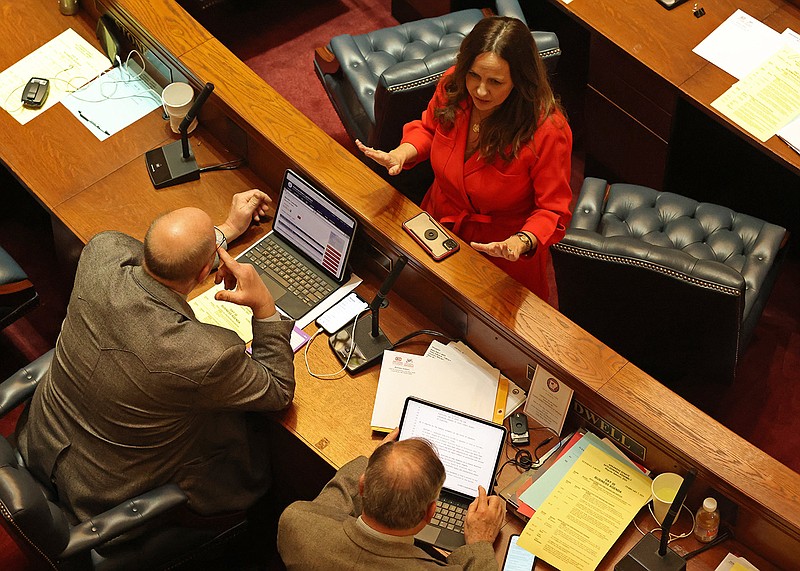The Arkansas Senate on Tuesday handily approved a bill that would repeal the state law under which a clinic, health center or other facility in which a pregnancy of a woman is willfully terminated or aborted shall be licensed by the state Department of Health.
With two senators voting present, the Senate voted 29-4 to send Senate Bill 138 by Sen. Missy Irvin, R-Mountain View, to the House for further consideration. Twenty-nine Senate Republicans voted for the bill, while the six Senate Democrats either voted against the bill or voted present.
Irvin told senators the bill is the "cleanest way" to rectify a conflict in the state.
The state cannot issue a license to entities that are performing illegal actions, and abortion is illegal in Arkansas under state law, she said.
"We looked at all different options," Irvin said. "We looked at different types of recommendations, but we feel confident that this is the cleanest way to deal with this situation."
On June 24, then-Arkansas Attorney General Leslie Rutledge signed a certificate implementing Act 180 of 2019 that bans abortions in Arkansas except to save the life of the mother in a medical emergency, just hours after the U.S. Supreme Court overturned the 1973 Roe v. Wade ruling that legalized abortion across the country.
Irvin told the Senate on Tuesday that if the U.S. Supreme Court reversed its abortion ruling and if SB138 becomes law, the Legislature would have to enact a law, or the governor would have to issue an executive order requiring these entities to be licensed by the state Department of Health.
"Everybody on both sides whether you are for abortion or against abortion .... [wants] the entity to be licensed," she said.
"All the reporting requirements that we put into legislation stay in state code."
